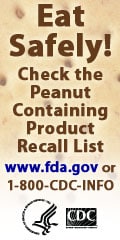A mother’s alcohol use during pregnancy can cause birth defects and developmental disabilities. These problems are completely preventable if a mother does not drink alcohol while pregnant.
The U.S. Surgeon General, the Centers for Disease Control and Prevention (CDC), the American Academy of Pediatrics, the American College of Obstetricians and Gynecologists, and many other national organizations all agree that all alcohol should be avoided during pregnancy.
Women Need to Get the Facts:
Drinking alcohol during pregnancy can cause a baby to be born with birth defects and have disabilities. These conditions, called fetal alcohol spectrum disorders, or FASDs, are among the top preventable birth defects and developmental disabilities. FASDs can cause problems in how a person looks, grows, learns and acts. FASDs can also cause birth defects of the heart, brain, and other major organs. These problems last a lifetime.
There is no known amount of alcohol that is safe to drink while pregnant. All drinks with alcohol can hurt an unborn baby. A 12-ounce can of beer has as much alcohol as a 5-ounce glass of wine or a 1-ounce shot of liquor.
There is no safe time to drink during pregnancy. Alcohol can harm a baby at any time during pregnancy. It can cause problems in the early weeks of pregnancy, before a woman even knows she is pregnant.
Too many women think drinking alcohol during pregnancy won’t hurt their unborn baby. About 1 in 12 pregnant women in the United States reports alcohol use.
FASDs are 100% preventable—if a woman does not drink alcohol while she is pregnant.
Ways to prevent FASDs:
If you are pregnant or trying to become pregnant, do not drink alcohol.
Even if you are not trying to get pregnant, but could become pregnant, do not drink alcohol.
If you are pregnant and drinking alcohol, stop now.
Mothers-to-be are not the only ones who can prevent FASDs. Friends and family members can play an important role by encouraging women to avoid alcohol during pregnancy. Schools, health and social service organizations, and communities can promote FASD prevention activities through education and intervention.
If you have questions about alcohol and pregnancy, talk to your doctor, nurse or other health care professional.
For more information, go to the CDC’s Web site at www.cdc.gov/ncbddd/fas.
---------
This article has been reproduced with the kind permission of the Centers for Disease Control and Prevention.
skip to main |
skip to sidebar
This is the blog of the Amherst Public Health Department. Here you'll find public health updates, links to health-related sites, blog posts by employees of the Amherst Public Health Department, and various articles of interest. Feel free to contact us by email via a link in our profile. Please bookmark this page and visit often!
About Us
- Amherst Health Department
- Amherst, MA, United States
- The mission of the Amherst Board of Health, working through the Health Department, is to promote the health and well-being of our community with special emphasis on eliminating health disparities. We fulfill this mission through our core functions: assessment, assurance, promotion, and policy development.
Twitter Updates
Blog Archive
-
▼
2009
(102)
-
▼
June
(16)
- State's Second H1N1 Flu-Related Death Announced
- Sharps Containers Now Available at The Amherst Hea...
- Advocating for Active Living in Your Community, Pa...
- Public Health Advisory: FDA & CDC Warn Consumers N...
- FDA Advises Consumers Not To Use Certain Zicam Col...
- FDA Warns Web Sites against Marketing Fraudulent H...
- A CDC Image of the H1N1 Influenza Virus
- First Death From H1N1 Flu in Massachusetts Reported
- H1N1 Update from MA Department of Public Health
- Advocating for Active Living in Your Community, Pa...
- New Case of Influenza Type A at Amherst Regional H...
- Kids and Technology: Tips for Parents in a High-Te...
- Why Alcohol and Pregnancy Do Not Mix
- Public Health Fact Sheet: Lyme Disease
- H1N1 (Swine Flu) Update for June 2nd, 2009
- Chang Farm Recalls Expired Chang Farm Bean and Soy...
-
▼
June
(16)
Labels
african american health
(1)
alcohol
(1)
animals
(1)
asbestos
(1)
asthma
(1)
cancer
(2)
CDC
(14)
children
(5)
diabetes
(1)
elder safety
(1)
events
(2)
family
(1)
FDA
(6)
fitness
(3)
food insecurity
(2)
food safety
(1)
H1N1 Influenza
(24)
health care
(1)
health disparities
(2)
Hispanic health
(1)
infectious disease
(5)
influenza
(9)
Latino health
(1)
medication disposal
(1)
MRSA
(2)
obesity
(1)
pandemic flu
(1)
pregnancy
(1)
public health
(5)
rabies
(1)
recalls
(27)
safety
(2)
salmonella
(11)
screening
(1)
STDs
(1)
technology
(1)
teenagers
(3)
Tick-borne illnesses
(1)
vaccinations
(2)
West Nile Virus
(1)
winter safety
(2)
young adults
(2)
Other Official Amherst Blogs
Amherst Resources
Local Health Resources
Other Local Health Dept Blogs
Health & Fitness Links
- America on the Move
- American Cancer Society
- American Diabetes Association
- American Medical Association
- BlackDoctor
- Fitness.gov
- Health.gov
- HealthFinder.gov
- HealthierUS.gov
- Healthline.com
- Healthy People 2010
- KidsHealth.org
- Mass In Motion
- MedlinePlus
- Nat'l Center for Complementary & Alternative Medicine
- National Health Information Center
- New York Times Wellness Blog
- SparkPeople
- WebMD
- Wellness.com
- Wellsphere.com
- WomensHealth.gov
Public Health Links
- American Public Health Association
- CDC Travelers' Health Website
- Centers for Disease Control
- Food and Drug Administration
- Food and Drug Administration
- GlobalHealth.gov
- MA Dept of Public Health
- MA DPH Public Health Blog
- Nat'l Assoc. of City & County Health Officials
- Nat'l Center for Farmworker Health
- National Institute for Mental Health
- National Institutes of Health
- Office of the Surgeon General
- Pioneer Valley Red Cross
- U.S. Department of Health & Human Services
- U.S. Food & Drug Administration
- Unnatural Causes
- World Health Organization





